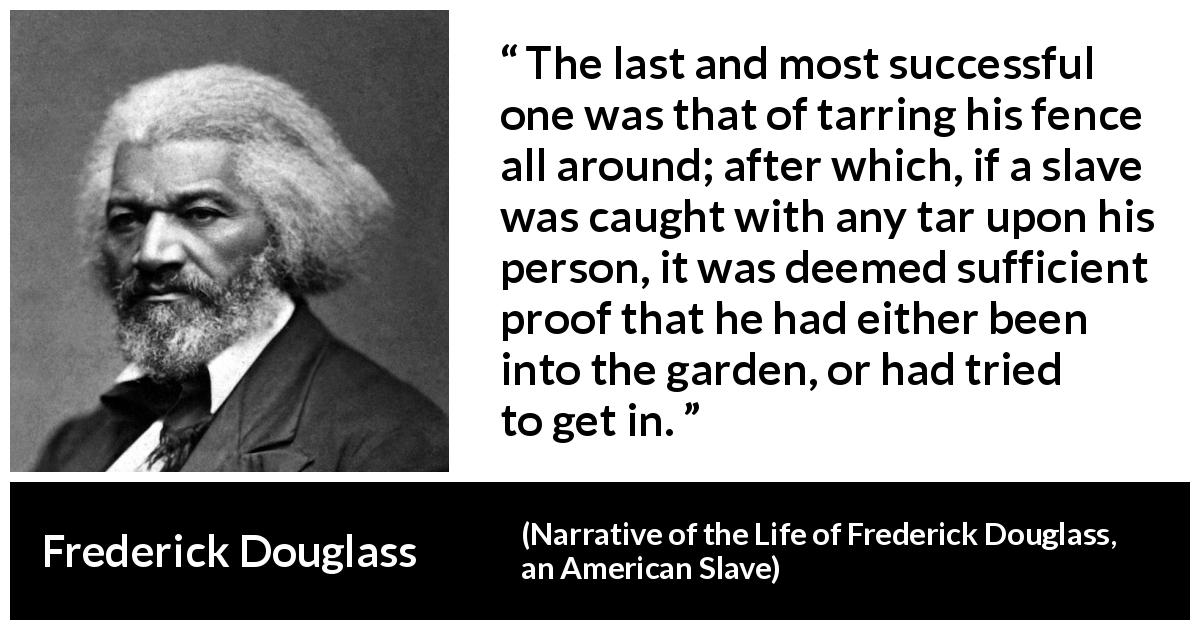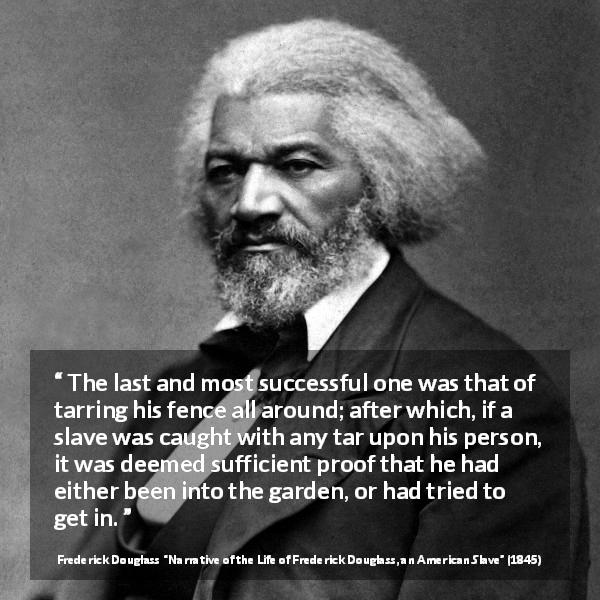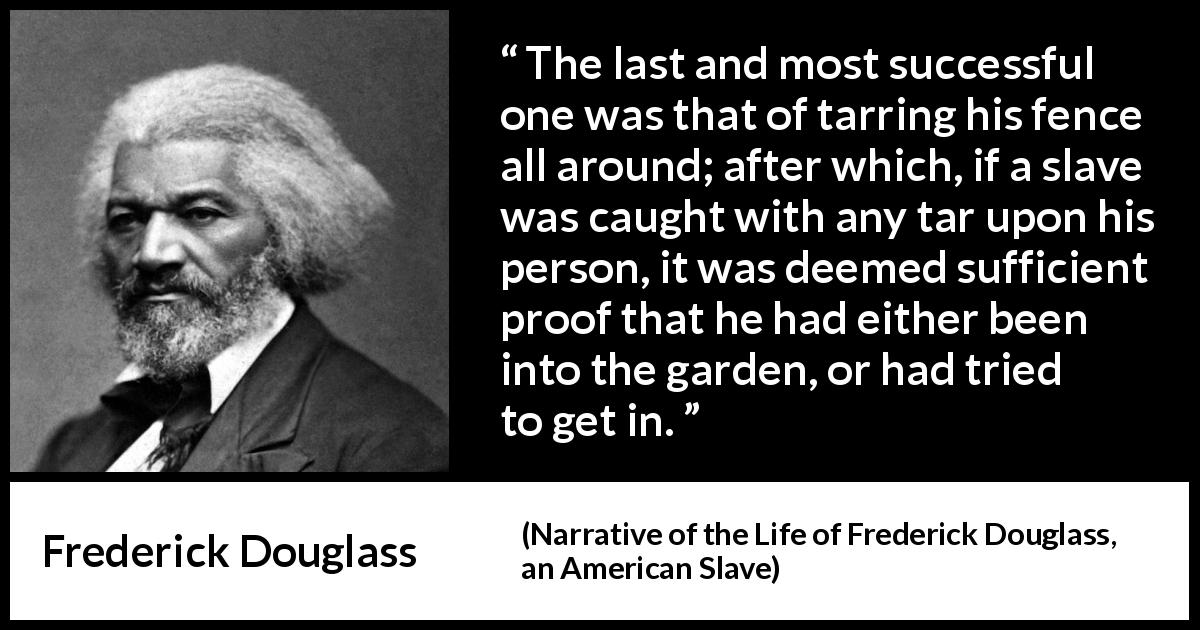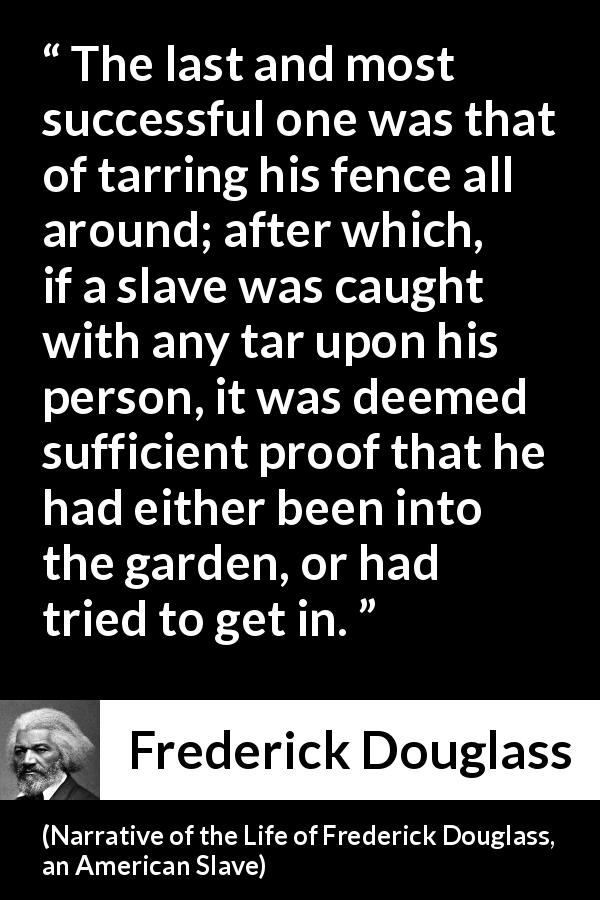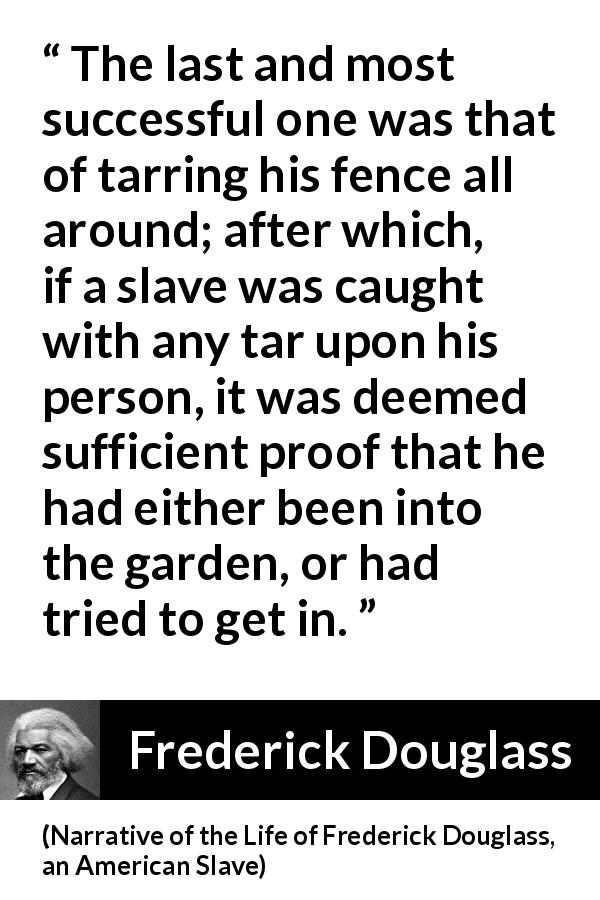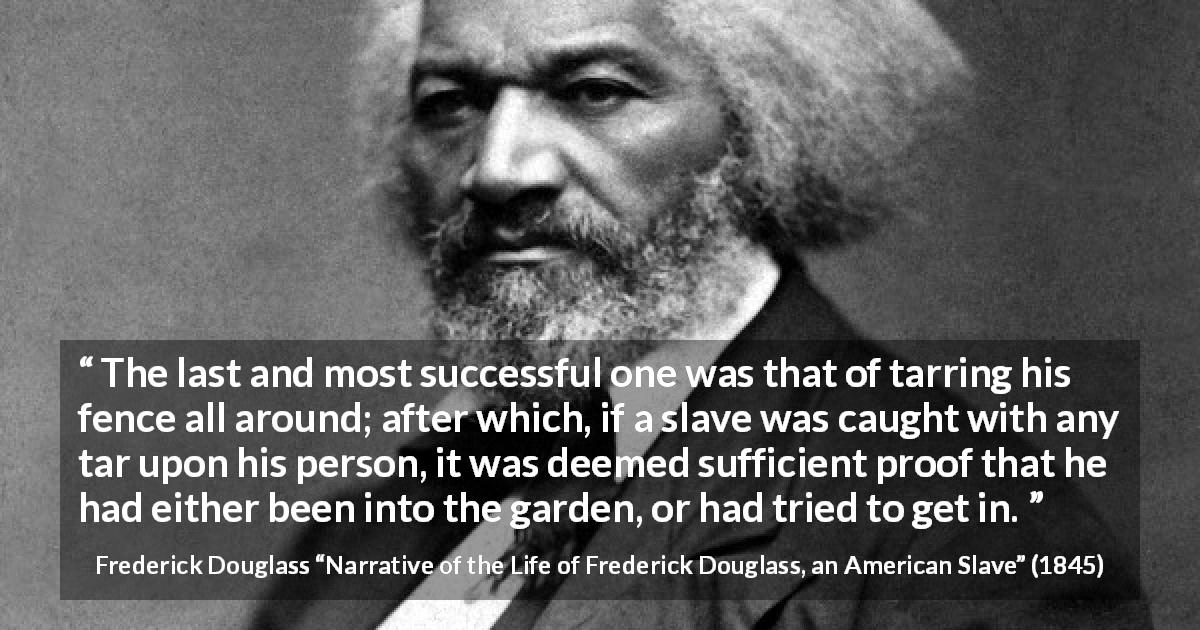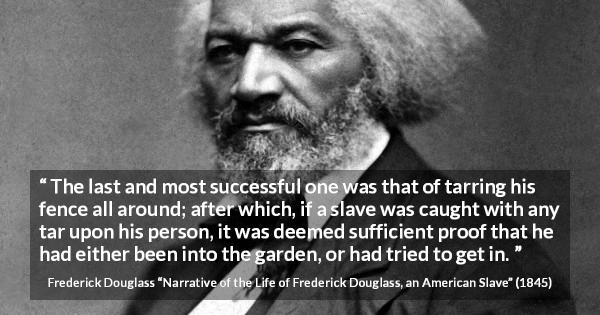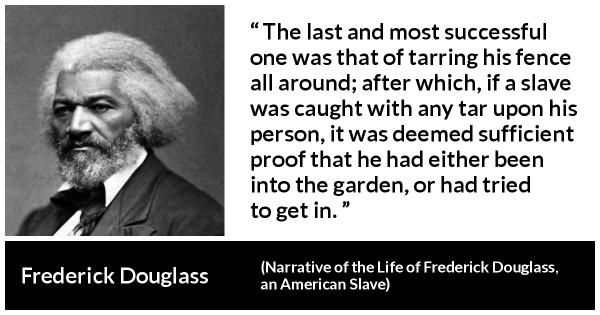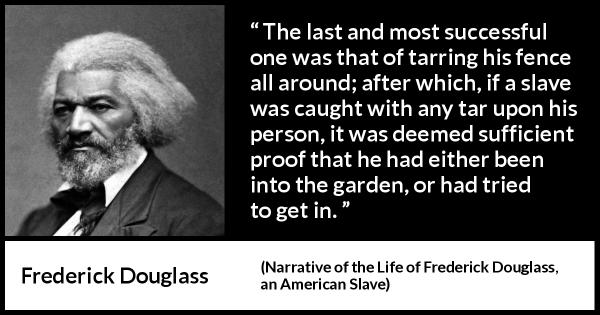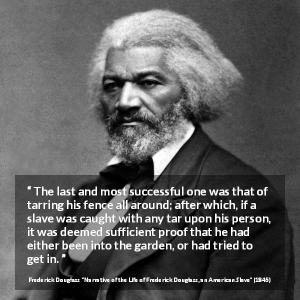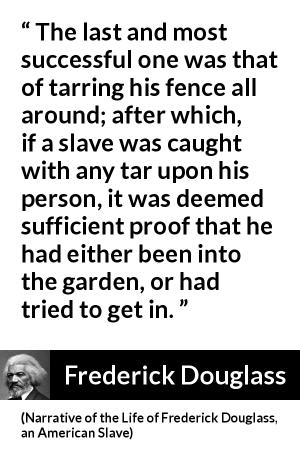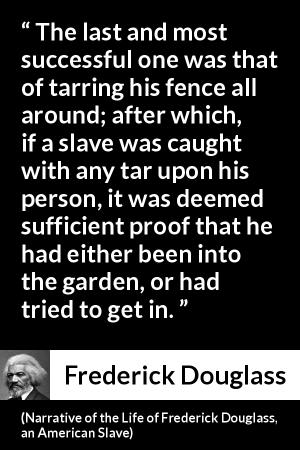“ The last and most successful one was that of tarring his fence all around; after which, if a slave was caught with any tar upon his person, it was deemed sufficient proof that he had either been into the garden, or had tried to get in. ”
Frederick Douglass, Narrative of the Life of Frederick Douglass, an American Slave (1845). copy citation
| Author | Frederick Douglass |
|---|---|
| Source | Narrative of the Life of Frederick Douglass, an American Slave |
| Topic | slavery trap tarring |
| Date | 1845 |
| Language | English |
| Reference | |
| Note | |
| Weblink | http://www.gutenberg.org/files/23/23-h/23-h.htm |
Context
“Its excellent fruit was quite a temptation to the hungry swarms of boys, as well as the older slaves, belonging to the colonel, few of whom had the virtue or the vice to resist it. Scarcely a day passed, during the summer, but that some slave had to take the lash for stealing fruit. The colonel had to resort to all kinds of stratagems to keep his slaves out of the garden. The last and most successful one was that of tarring his fence all around; after which, if a slave was caught with any tar upon his person, it was deemed sufficient proof that he had either been into the garden, or had tried to get in. In either case, he was severely whipped by the chief gardener. This plan worked well; the slaves became as fearful of tar as of the lash. They seemed to realize the impossibility of touching tar without being defiled.”
source
